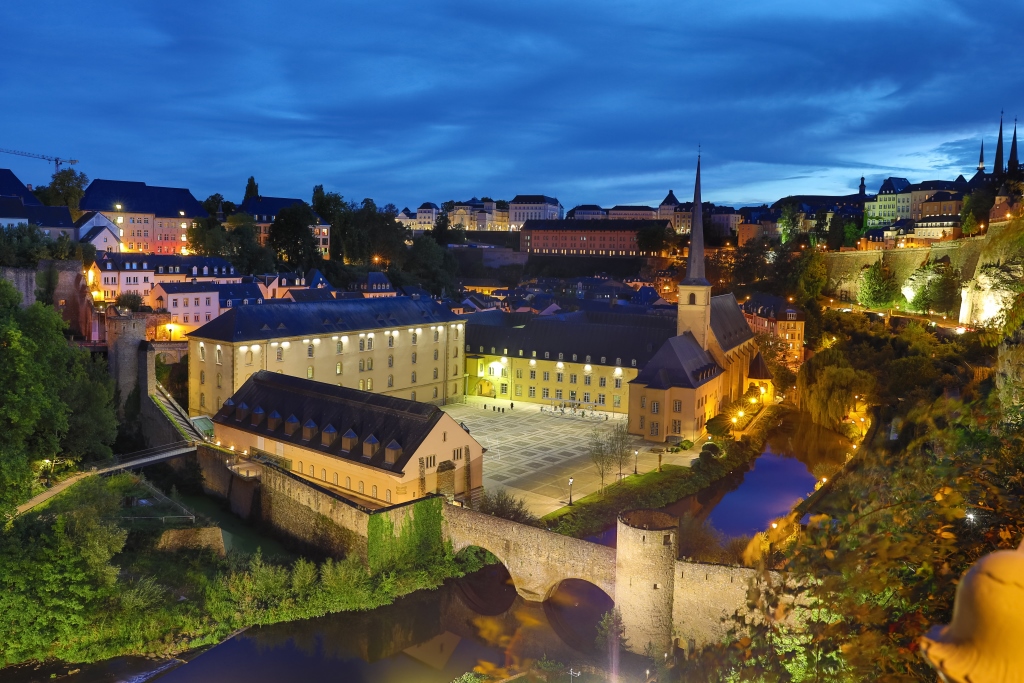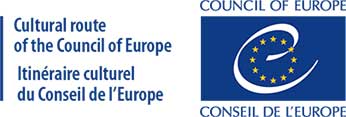El Acuerdo Parcial Ampliado sobre los Itinerarios Culturales del Consejo de Europa

El Acuerdo Parcial Ampliado sobre los Itinerarios Culturales del Consejo de Europa (APA) establecido en 2010 busca reforzar el potencial de los Itinerarios culturales para la cooperación cultural, el desarrollo territorial sustentable y la cohesión social, con un enfoque particular en temas de importancia simbólica para la unidad, historia, cultura y valores europeos al igual que para el descubrimiento de destinaciones menos conocidas.
El APA ayuda a fortalecer la dimensión democrática del intercambio y turismo culturales a través de la participación de redes, asociaciones, autoridades locales y regionales, universidades y organizaciones profesionales. Contribuye a la preservación de un patrimonio diverso a través de itinerarios turísticos alternativos y temáticos y proyectos culturales.
El APA sigue los lineamientos de las políticas del Consejo de Europa, decide la estrategia del programa y otorga la certificación "Itinerario Cultural del Consejo de Europa". Está abierto a los Estados miembros y no miembros del Consejo de Europa con el objetivo de proporcionar apoyo político a iniciativas nacionales, regionales y locales para promover la cultura y el turismo. La lista completa de los Estados miembros del APA se puede encontrar aquí.
Dos órganos estatutarios constituyen el APA:
- El Consejo de Dirección del APA está compuesta por representantes de los Ministerios de los Estados miembros y otorga la certificación “Itinerario Cultural del Consejo de Europa”. El Congreso de Autoridades Locales y Regionales del Consejo de Europa, el Parlamento Europeo, la Comisión Europea, la OMT, la Unesco y la OECD participan en su trabajo.
- El Comité Estatutario del APA está compuesto por representantes de los Ministerios de Asuntos Exteriores y adopta el presupuesto anual del APA.
Es un evento importante el Foro Consultivo Anual, que reúne a representantes de Itinerarios Culturales, organismos nacionales, redes y organizaciones internacionales de patrimonio y turismo. El Foro Consultivo Anual de los Itinerario Culturales se organiza en estrecha colaboración con uno de los Estados miembros del APA.
Según el artículo 1 de la Resolución del Comité de Ministros CM/Res(2013)66, el objetivo del APA es el siguiente:
El Acuerdo Parcial Ampliado (APA) tiene como objetivo promover la identidad y la ciudadanía europeas mediante el conocimiento y la conciencia del patrimonio común de Europa, como complemento a este objetivo desarrollar de vínculos culturales y el diálogo dentro de Europa, así como con otros países y regiones forma parte de las acciones. Procurará configurar un espacio cultural compartido mediante el desarrollo de itinerarios culturales destinados a fomentar la concienciación sobre el patrimonio, la educación, la creación de redes, la calidad y el turismo transfronterizo sustentable y otras actividades relacionadas.
El APA contribuirá a reforzar el potencial de los Itinerarios culturales para la cooperación cultural, el desarrollo territorial sustentable y la cohesión social, con un enfoque particular en temas de importancia simbólica para la unidad, la historia, la cultura y los valores europeos y el descubrimiento de las destinaciones menos conocidas. Reforzará la dimensión democrática del intercambio cultural y el turismo mediante la participación de redes y asociaciones de base, autoridades locales y regionales, universidades y organizaciones profesionales. Contribuirá a la preservación de un patrimonio diverso a través de itinerarios turísticos alternativos y temáticos y proyectos culturales.
Las actividades del APA se definen en el Artículo 1 de la Resolución del Comité de Ministros CM/Res(2013)66 de la siguiente manera:
The EPA, drawing in particular on the expertise of the European Cultural Routes Institute, shall provide advice and expert assistance for the development, implementation, evaluation and promotion of cultural routes. This involves expertise on:
- setting up and functioning of project networks and organisations and the development of co‑operation agreements;
- research on the historical background of the routes and the development of the cultural and educational content and activities of the cultural routes;
- development of a sustainable tourist offer based on the cultural routes, thus contributing to the economic well-being of regions;
- preparation and implementation of financing and promotion strategies;
- training and capacity-building for cultural routes operators, in particular in relation to Council of Europe and other international standards in the field of heritage and culture, as well as standards of professional practice in the field of tourism;
- promotion, visibility and all other aspects related to the compliance with the Council of Europe standards.
The EPA shall support networking and exchange between cultural routes operators and other partners in the field of cultural tourism, in particular for:
- the development of a common vision and strategy for cultural routes as tourism products;
- the development of partnerships to increase the resources available for cultural tourism in Europe;
- the identification and dissemination of good practice.
The EPA shall contribute to developing new orientations and standards in relation to cultural routes and tourism in response to the challenges and concerns of modern societies.
The EPA shall develop further methodologies for the promotion of cross-border cultural tourism.
The EPA shall award the Council of Europe Cultural Route certification in accordance with Resolution CM/Res(2013)67-rev the rules for the award of the “Cultural Route of the Council of Europe” certification.
La adhesión y participación al APA se definen en el artículo 2 de la Resolución del Comité de Ministros CM/Res(2013)66:
2.1 Any member State of the Council of Europe or a Contracting Party to the European Cultural Convention, as well as the European Union, may join the EPA by notification addressed to the Secretary General of the Council of Europe.
2.2 The Committee of Ministers, in its composition restricted to the representatives of the member States of the EPA, may, by the majority stipulated in Article 20.d of the Statute of the Council of Europe, invite any non-member State of the Council of Europe to join the EPA, following consultation of EPA members which are not members of the Council of Europe. A non-member State which receives such an invitation shall notify the Secretary General of its intention to become a member of the EPA.
2.3 Member States of the Council of Europe and other Contracting Parties to the European Cultural Convention not joining the EPA may request the status of observer with EPA for a period of maximum one year, without any financial contribution. Decisions in such matters will be made by the Governing Board of the EPA.
2.4 The European Union is invited to join the EPA with the same rights and obligations as the other members of the EPA. Pending its accession to the EPA, the European Union will continue to participate in the work in accordance with arrangements laid down by each body of the EPA.
2.5 In accordance with Statutory Resolution Res(93)28 on partial and enlarged agreements and at their request, the United Nations World Tourism Organisation (OMT), the OECD and UNESCO will be invited to participate in meetings of the EPA as observers without the right to vote.
2.6 The Committee of Ministers, in its composition restricted to the representatives of the States members of the Enlarged Partial Agreement, may, by the majority stipulated in Article 20.d of the Statute of the Council of Europe, following consultation of EPA members which are not members of the Council of Europe, authorise the EPA to invite other international intergovernmental organisations, the representative of the Council of Europe Cultural Routes, NGOs or other bodies who contribute to EPA’s objectives, to participate in its work, without the right to vote.
2.7 The Parliamentary Assembly, the Congress of Local and Regional Authorities of the Council of Europe and the Conference of INGOs, may participate in the work of the EPA in accordance with Article 3.5 (definition of the EPA Governing Board).
El Acuerdo Parcial Ampliado sobre los Itinerarios Culturales del Consejo de Europa se basa en dos Resoluciones del Comité de Ministros del Consejo de Europa:

Abadia de Neumünster, Luxemburgo
Acuerdo Parcial Ampliado sobre los Itinerarios Culturales del Consejo de Europa, Secretaría
Abbaye de Neumünster
Bâtiment Robert Bruch
28, rue Münster, L-2160 Luxembourg
Grand-Duché de Luxembourg
Tel: +352 24 12 50
[email protected]



